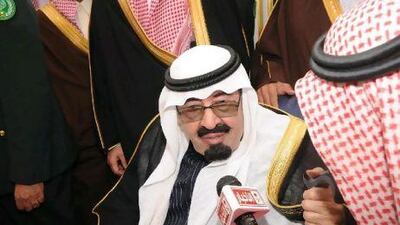Pressure is mounting on international companies to sever ties with the Syrian regime after Hillary Clinton, the US secretary of state, called for tighter economic sanctions.
Financial Fallout: Read The National's coverage of the global economic chaos
World view bleak but picture looks brighter in the Middle East Declines in markets are raising the likelihood of another global slowdown. If the world does lurch back into recession, economists say the MIddle East is in a better position to weather the economic storm. read article
Local tourism and retail at some risk Consumer spending is expected to remain buoyant across the Middle East should there be another economic slowdown across the world. Read article
UAE banks proactive on mortgages UAE lenders are starting to aggressively target homebuyers for the first time since US mortgage defaults sparked the 2008 global meltdown. read article
Asia may put GCC on slippery slope An economic slowdown threatens fuel demand, but Opec is likely to act if oil prices far too fall. read article
Small businesses can take shelter With the threat of a second global downturn looming large, both small businesses and investors have a lot to lose. read article
Threat to US and EU but Gulf set fair Financially, the region is in a better position to weather storms. read article
Syria has suffered a dearth of new investment this year, which is likely to be further exacerbated by Mrs Clinton's comments, experts say.
"As far as new business and investments are concerned, the comments by Mrs Clinton are going to mean it is increasingly difficult to do business," said Ghanem Nuseibeh, the founder of Cornerstone Global Associates.
More than 1,000 people are believed to have died at the hands of the regime of Bashar Al Assad, the president, since an ongoing uprising began earlier this year.
Mr Nuseibeh expects investment from businesses and governments in the UAE, Saudi Arabia and Qatar to Syria to be severed.
"The UAE has been one of the most reluctant countries to hasten to cut ties with the Syrian regime, but things have changed now," he said.
The UAE, Saudi Arabia and Egypt are the biggest Arab exporters to Syria, with each country's private-sector exposure running into billions of dollars.
Many businesses based in the Emirates have already had their fingers burnt this year after investing in government-owned or affiliated companies in Egypt and Tunisia.
Despite the continuing unrest in Syria, Majid Al Futtaim, one of the biggest developers in the UAE, announced last week it had begun work on a US$1 billion (Dh3.67bn) retail and hotel development outside Damascus.
Saudi Arabia has taken an unusually strong line in condemning the bloody suppression of protests by Damascus.
King Abdullah last week recalled Saudi Arabia's ambassador from the country, demanding an "end to the killing machine" of Mr Al Assad's regime.
That is likely to call into question a plan by one of the kingdom's largest businesses, Saudi Telecom Company (STC), to launch operations in Syria.
STC last year entered the bidding process for a mobile operating licence in Syria, and said in May it was pursuing the move, despite escalating anti-government protests.
The auction for Syria's third mobile licence has been delayed due to the unrest. Other operators, including Etisalat, France Telecom and Turkcell, pulled out of the bid, some citing concerns over a 25 per cent revenue share demanded by Syria.
The country's economic growth is forecast to slow to 3 per cent this year from 3.2 per cent last year as oil production declines, according to the IMF.
Mrs Clinton called specifically on China, Syria's biggest trade importer, Russia and India to cease doing business in the troubled state.
"We urge those countries still buying Syrian oil and gas, those countries still sending [Mr Al] Assad weapons, those countries whose political and economic support give him comfort in his brutality, to get on the right side of history," Ms Clinton said at a news conference in Norway on Friday.
Syria produces about 386,000 barrels of crude a day and has the ninth-largest oil reserves in the Middle East, according to BP.
Although the country exports crude oil, its refinery capacity is not sufficient to meet domestic demand for fuel and it reportedly bought 60,000 tonnes of petrol last week from two oil traders based in Switzerland: Vitol and Trafigura.
"The real impact is if money transfers are blocked, this would have an effect on business," said Haissam Arabi, the chief executive of Gulfmena Investments.
"If you have an ongoing or established business there, then sanctions will affect you severely."
bflanagan@thenational.ae

